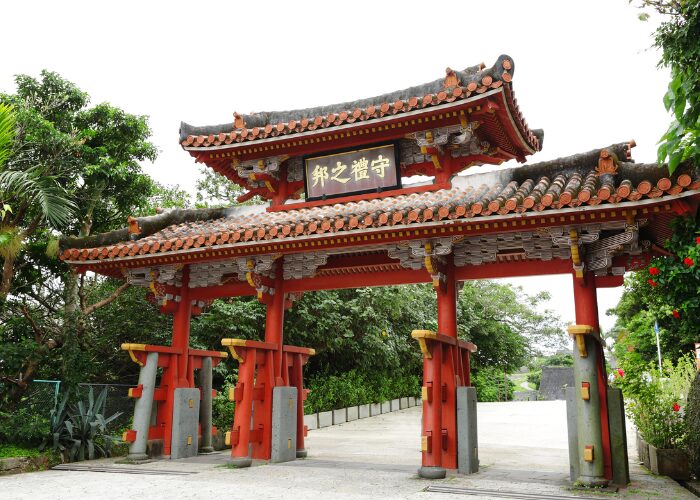
Okinawa, Japan, is unique for several reasons:
Cultural Heritage
- Ryukyu Kingdom History: Okinawa was once the independent Ryukyu Kingdom, which has left a distinct cultural and historical legacy that differs from the rest of Japan. This includes unique festivals, rituals, and traditions.
- Languages and Dialects: Okinawa has its own languages and dialects, known as the Ryukyuan languages. These languages are distinct from standard Japanese and are an important part of Okinawan cultural identity.
Traditional Arts
- Music and Dance: Okinawan music and dance, such as Eisa dance and traditional Ryukyuan dance, are unique. The sanshin, a traditional three-stringed instrument, is central to Okinawan music.
- Crafts: Okinawan crafts, like pottery (Tsuboya-yaki) and textiles (Bingata), are highly regarded and have distinct styles and techniques.
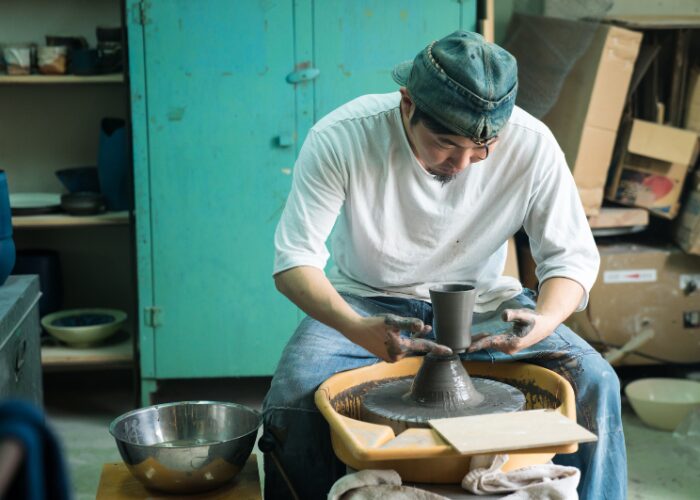
Natural Beauty
- Beaches and Marine Life: Okinawa is famous for its stunning beaches, crystal-clear waters, and vibrant coral reefs. It’s a popular destination for snorkeling, diving, and marine activities.
- Subtropical Climate: The warm subtropical climate allows for lush vegetation and a unique ecosystem that differs from the mainland.
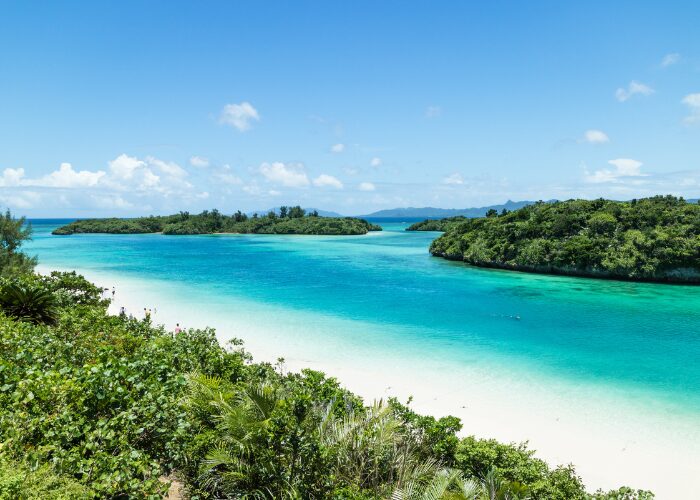
Cuisine
- Distinct Dishes: Okinawan cuisine features unique dishes such as Goya Champuru (stir-fried bitter melon), Rafute (braised pork belly), and Soki Soba (noodle soup with pork spare ribs).
- Health Foods: Okinawan food is often highlighted for its health benefits, contributing to the region’s reputation for longevity. Ingredients like seaweed, sweet potatoes, and turmeric are commonly used.
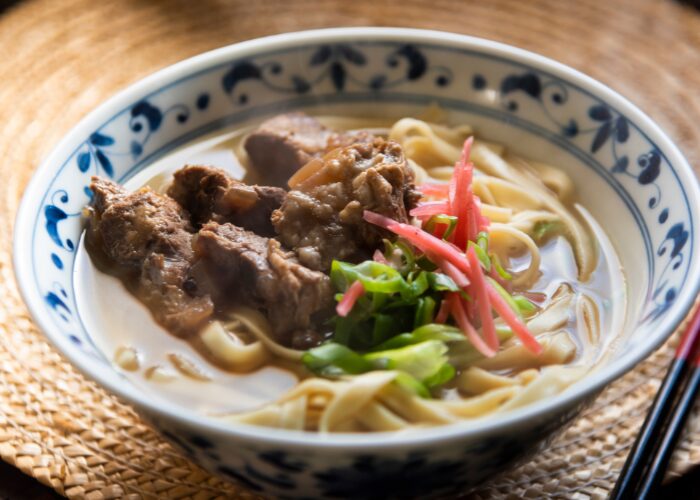
American Influence
- Post-War History: After World War II, Okinawa was under U.S. administration until 1972, which has left a lasting American cultural influence. Many U.S. military bases are still present, impacting the local culture and economy.
- Cultural Fusion: The presence of U.S. military bases has led to a fusion of American and Okinawan cultures, visible in certain foods, festivals, and social practices.
Longevity
- Centenarians: Okinawa is known for having one of the highest rates of centenarians in the world. The local diet, active lifestyle, and strong community bonds are often cited as contributing factors.
Festivals and Celebrations
- Unique Festivals: Okinawa hosts distinctive festivals such as the Eisa Festival, which features traditional dance and music, and the Naha Tug-of-War, a massive tug-of-war event with historical significance.
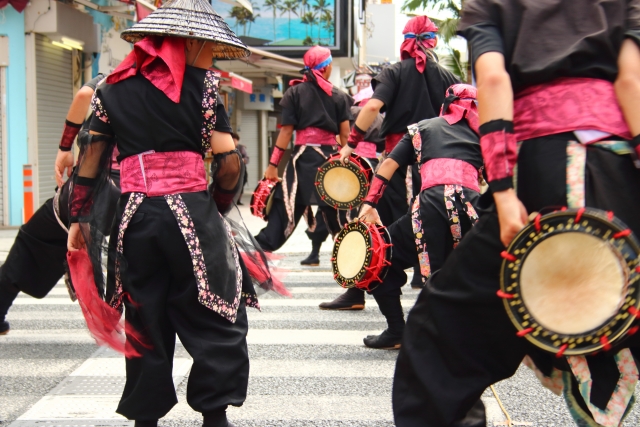
These unique aspects of Okinawa contribute to its distinct identity and charm, setting it apart from the rest of Japan.
more about
The significance of remembering the battle of Okinawa
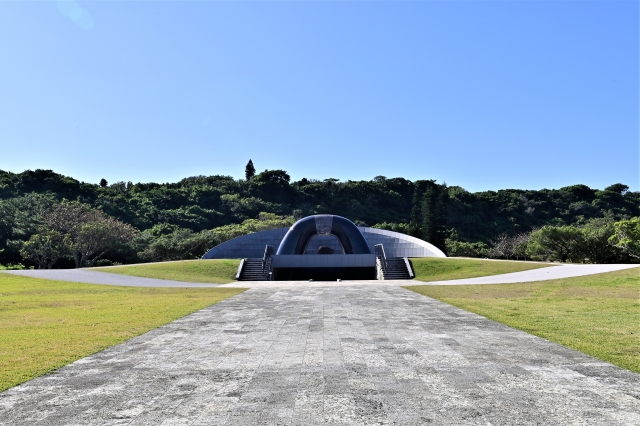
Remembering the Battle of Okinawa is significant for several reasons, encompassing historical, cultural, ethical, and educational aspects:
Historical Significance
- Understanding WWII: The Battle of Okinawa was one of the last major battles of World War II and played a crucial role in the final stages of the conflict. It offers insights into the tactics, strategies, and scale of the Pacific Theater.
- Impact on War Outcomes: The battle influenced the decision to use atomic bombs on Hiroshima and Nagasaki, which subsequently led to Japan’s surrender and the end of the war.
Human Cost
- Honoring the Fallen: Commemorating the battle honors the memory of the soldiers and civilians who lost their lives. It recognizes their sacrifices and the immense human cost of war.
- Civilian Suffering: The battle highlights the tragic impact on Okinawan civilians, many of whom were caught in the crossfire, faced forced labor, or suffered from mass suicides under duress. Remembering these events underscores the importance of protecting civilian lives in conflicts.
Lessons in Warfare
- Brutality of War: The Battle of Okinawa exemplifies the brutality and devastation of war, serving as a powerful reminder of the need for peace and diplomacy to prevent such conflicts in the future.
- Psychological and Moral Lessons: The battle’s intense combat, including kamikaze attacks and close-quarter fighting, illustrates the psychological toll on soldiers and the moral complexities of wartime decisions.
Cultural Memory
- Okinawan Identity: For the people of Okinawa, the battle is a pivotal event in their history and identity. It is a reminder of their resilience and the impact of external powers on their homeland.
- Preserving History: Remembering the battle helps preserve the historical and cultural heritage of Okinawa, ensuring that future generations understand the events that shaped their society.
Educational Value
- Teaching History: The battle serves as an important topic in history education, helping students understand the complexities of World War II, including military strategy, international relations, and the human experience of war.
- Promoting Peace: Educating about the Battle of Okinawa can promote a broader understanding of the consequences of war, fostering a commitment to peace, conflict resolution, and international cooperation.
Ethical Reflections
- War Ethics: The battle raises questions about the ethics of wartime decisions, including the use of atomic bombs and the treatment of civilians. Reflecting on these issues helps develop a nuanced perspective on the moral dimensions of warfare.
- Global Responsibility: Remembering the battle encourages a global responsibility to prevent future conflicts and protect human rights, emphasizing the importance of international solidarity and humanitarian efforts.
By remembering the Battle of Okinawa, we acknowledge the profound impacts of war, honor the memories of those affected, and draw critical lessons to guide future actions toward peace and reconciliation.
Leave a Reply